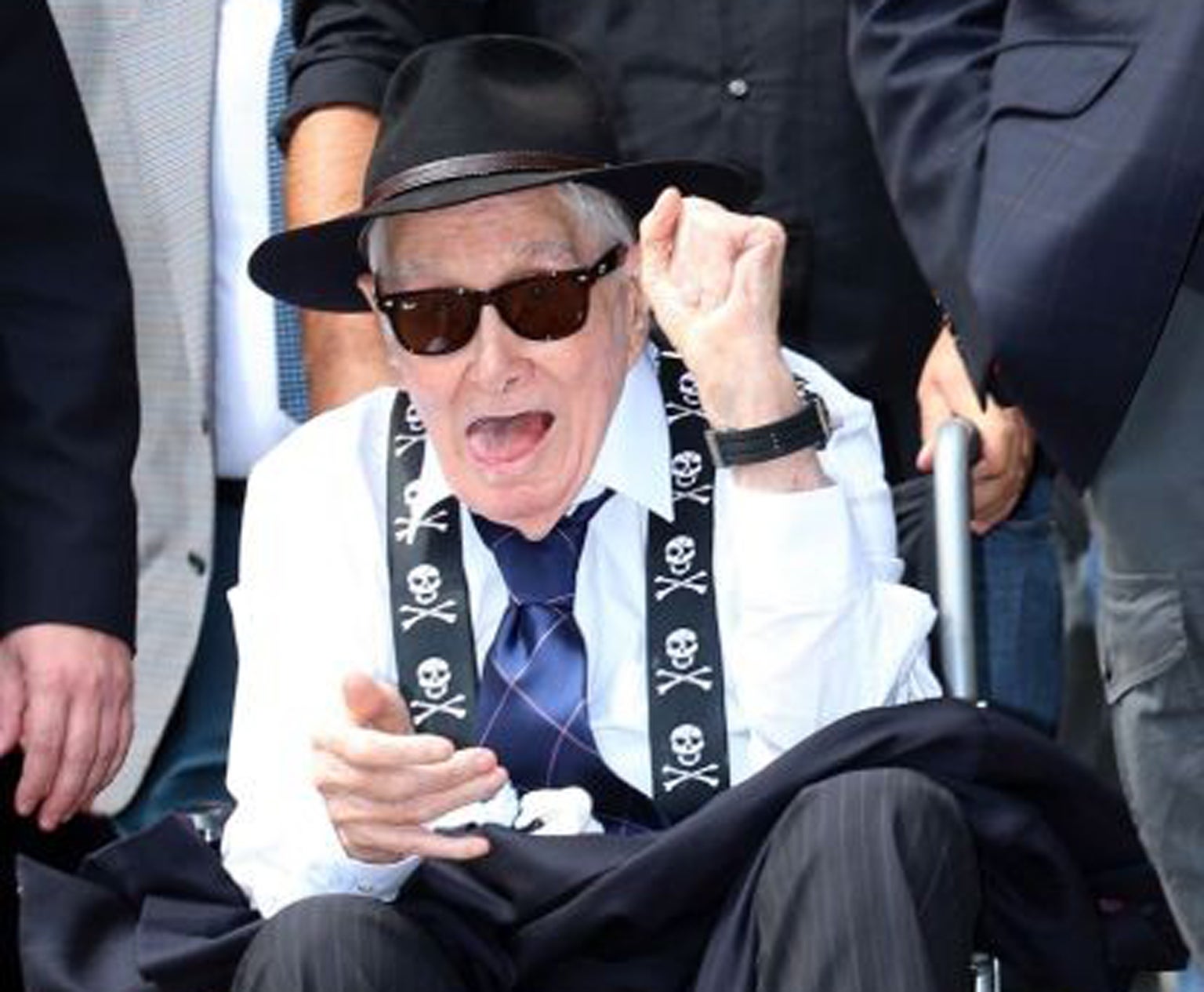Ronnie Biggs dead: Great Train Robbery fugitive dies aged 84
Biggs became famous after he escaped from prison and spent the next three decades on the loose in Brazil following 'The Crime of the Century'

Ronnie Biggs, the British criminal who famously escaped after taking part in the Great Train Robbery, has died aged 84.
Last seen in public at the funeral of fellow Great Train Robber Bruce Reynolds in March, Biggs had suffered a number of strokes in recent years and passed away at a care home in North London early today.
Ronnie Biggs Obituary: From teaboy to Great Train Robber
Biggs was a small-time career criminal before he joined the gang which, in 1963, held up a Royal Mail freight train on its way from Glasgow to London.
The heist took £2.6 million in used banknotes– a huge sum at the time – of which Biggs received a cut of around £148,000. Most of the gang was quickly rounded up by police, and received sentences of between 14 and 30 years.
Biggs ended up serving just 15 months of his 30-year sentence, using a rope ladder to escape from Wandsworth prison while other inmates created a diversion in the exercise yard.
He spent the next nine years on the run after receiving plastic surgery in Paris, and eventually carved out a life for himself in Rio de Janeiro, Brazil. Going under the name of Michael Haynes, he fathered a child with a Brazilian lover – unwittingly making himself immune from extradition when Scotland Yard found him in February 1974.
In 1978, Biggs recorded a song, No One is Innocent, with the punk rock group the Sex Pistols, and in January 1994 he published his autobiography, Odd Man Out.
Biggs suffered his first stroke in 1998, shortly before his 70th birthday, prompting him to return home and give himself up to police. After his fourth stroke he was moved to a hospital in Woolwich, before being fed by a drip while held at Belmarsh Prison.
Biggs was moved from Belmarsh to Norwich Prison in July 2007 to live on a unit for elderly inmates.
Despite his increasingly poor health, Justice Secretary Jack Straw refused Biggs parole in 2009 and accused him of being “wholly unrepentant” about his crimes. He was finally granted compassionate release from his sentence on 6 August 2009, two days before his 80th birthday.
Speaking earlier this year Biggs said he was proud to have been part of the gang behind the robbery.
Biggs, who could not speak due to his strokes and communicated through a spelling board, said: “If you want to ask me if I have any regrets about being one of the train robbers, my answer is, 'No'.
“I will go further: I am proud to have been one of them. I am equally happy to be described as the 'tea-boy' or 'The Brain'.
“I was there that August night and that is what counts. I am one of the few witnesses - living or dead - to what was 'The Crime of the Century'.”
The robbery is the subject of two BBC film dramas - A Robber's Tale and A Copper's Tale - due to air on BBC One tonight and tomorrow.
Biggs' publicists, who run his website and the Twitter account @ronniebiggsnews, said: “Sadly we lost Ron during the night. As always, his timing was perfect to the end. Keep him and his family in your thoughts.”
Ronnie Biggs: The Great Train Robber's life in pictures
Show all 10Subscribe to Independent Premium to bookmark this article
Want to bookmark your favourite articles and stories to read or reference later? Start your Independent Premium subscription today.
